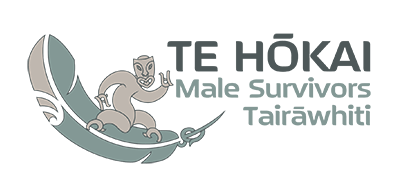MAORI endure more than their fair share of both family and sexual violence so it could take a Maori world view to deal with it, researchers say.
The fall-out from sexual assault cannot be measured by the incident (or incidences) itself. Rather, it is tied to the impact on the individual and is influenced by everything from self-worth to a sense of violation of trust.
Also critical is the world view of the victim – or survivor – which means cultural connections have a big part to play.
This was the issue explored by academics Leonie Pihama, Cherryl Smith, Rihi Te Nana, John Reid, Ngaropi Cameron and Kim Southey in their 2016 report, Maori Cultural Definitions of Sexual Violence.
On the whole, definitions of sexual violence in Aotearoa –
are located within dominant Pakeha frameworks that do not provide adequately for understanding the context of sexual violence for Maori
the writers say
As a result, Maori working in the area of healing the trauma of sexual violence had been working to enable culturally-defined understandings and traditional knowledge as a way to help understand sexual violence in Aotearoa.
So the writers wanted to explore Maori views of the origins and impacts of sexual violence for Maori, and to advocate for kaupapa Maori and decolonising approaches to be supported in dealing with these issues.
Earlier research shows that, while family and sexual violence were rare in Maori society prior to colonisation, modern Maori were substantially over-represented as both victims and perpetrators.
For example, the writers point to a 2004 report (the Second Maori Taskforce on Whanau Violence, Kruger et al.), which concludes that such high prevalence of sexual violence within Maori communities can be located in the act, and impact of colonisation.
And they remind readers that the variety of sexual violence can be wide-reaching, noting a Women’s Refuge definition that includes:
- When an adult says sexual things, touches in a sexual way, or has any sexual contact with a child under 16.
- Rape.
- Forcing you to have sex.
- Making you feel guilty if you say no to sex.
- When you give in to sex to put them in a better mood or to avoid a hiding.
- When you have sex so they will stop pestering you.
- Making you do sexual things that hurt, make you feel ashamed, or bad.
- Sexual harassment.
- Unwanted sexual touching.
- Forcing you to watch pornography.
- When they keep having affairs and you don’t like it.
The more general definitions point to a need to provide definitions that include Maori views of violence that recognise political, cultural and spiritual understandings and explanations.
the writers say
So what is to be done?
Again referring to the 2004 Taskforce, the writers supported its assertion that any framework for healing should be based upon the view that colonisation had distorted Maori notions of whakapapa, tikanga, wairua, tapu, mauri and mana.
The work of the Taskforce aligns to a strong school of thought that argues the need to draw from te ao Maori as a source of healing.
the writers said
Sexual violence within Maaori understandings is an absolute violation of the mana of the person and the collective mana of whānau, hapū and iwi. It is a violent transgression against a person’s whakapapa that reaches back to past generations and has direct impacts on generations of the future.
SOURCE: Maori Cultural Definitions of Sexual Violence (2016), L. Pihama, C. Smith, R. Te Nana, J. Reid, N. Cameron and K. Southey.
